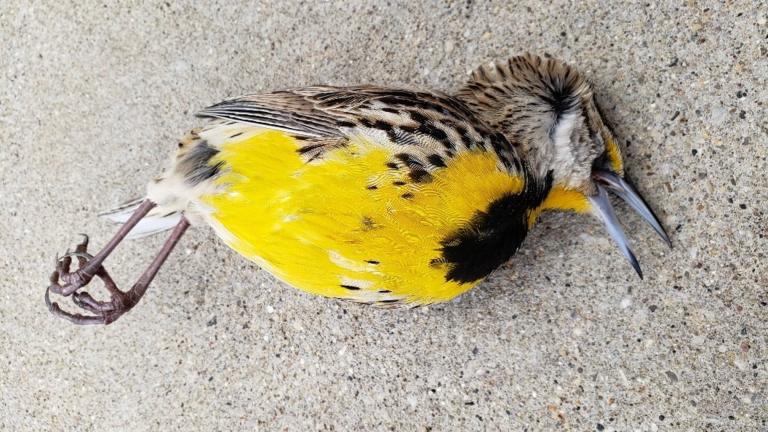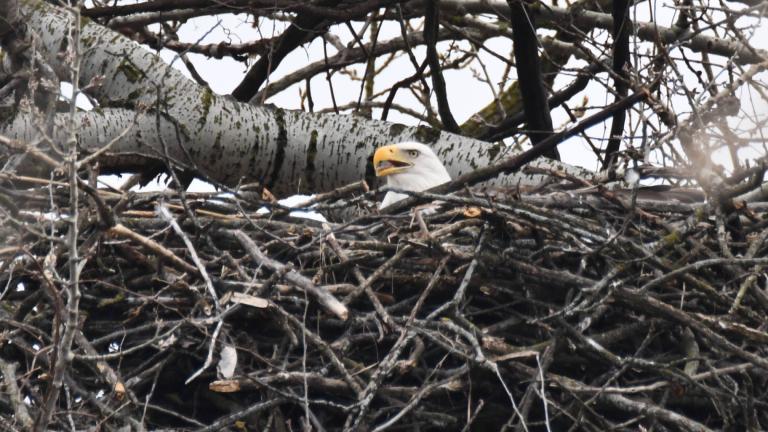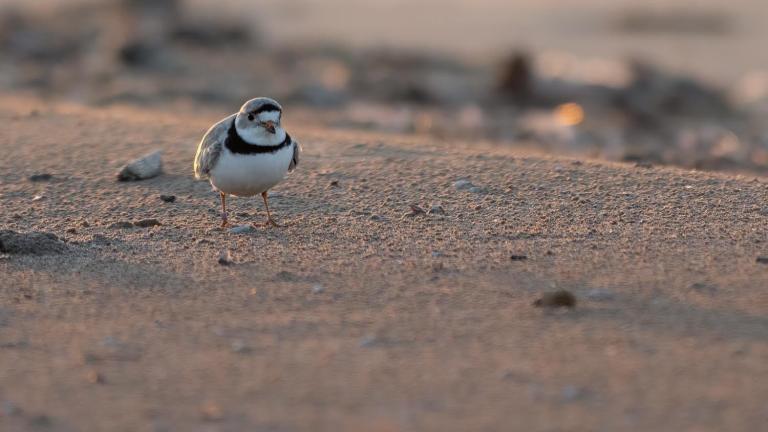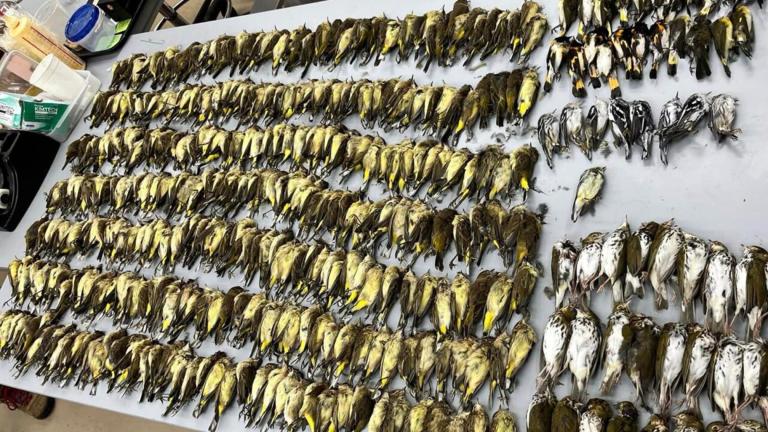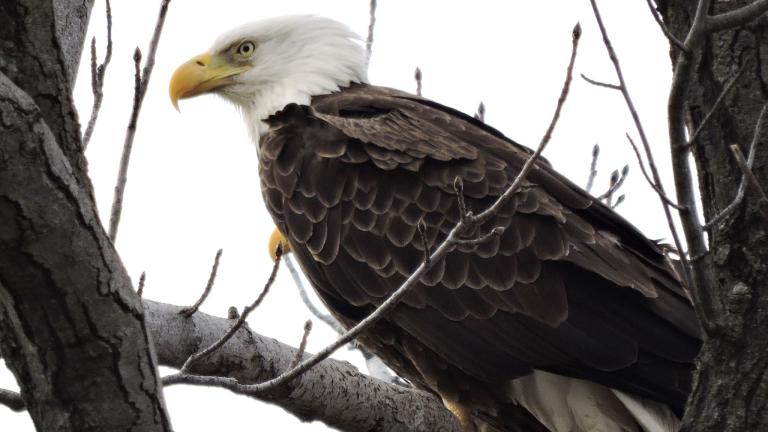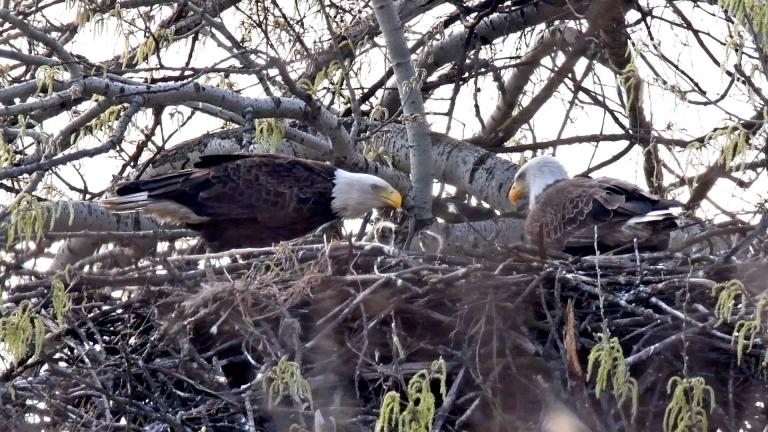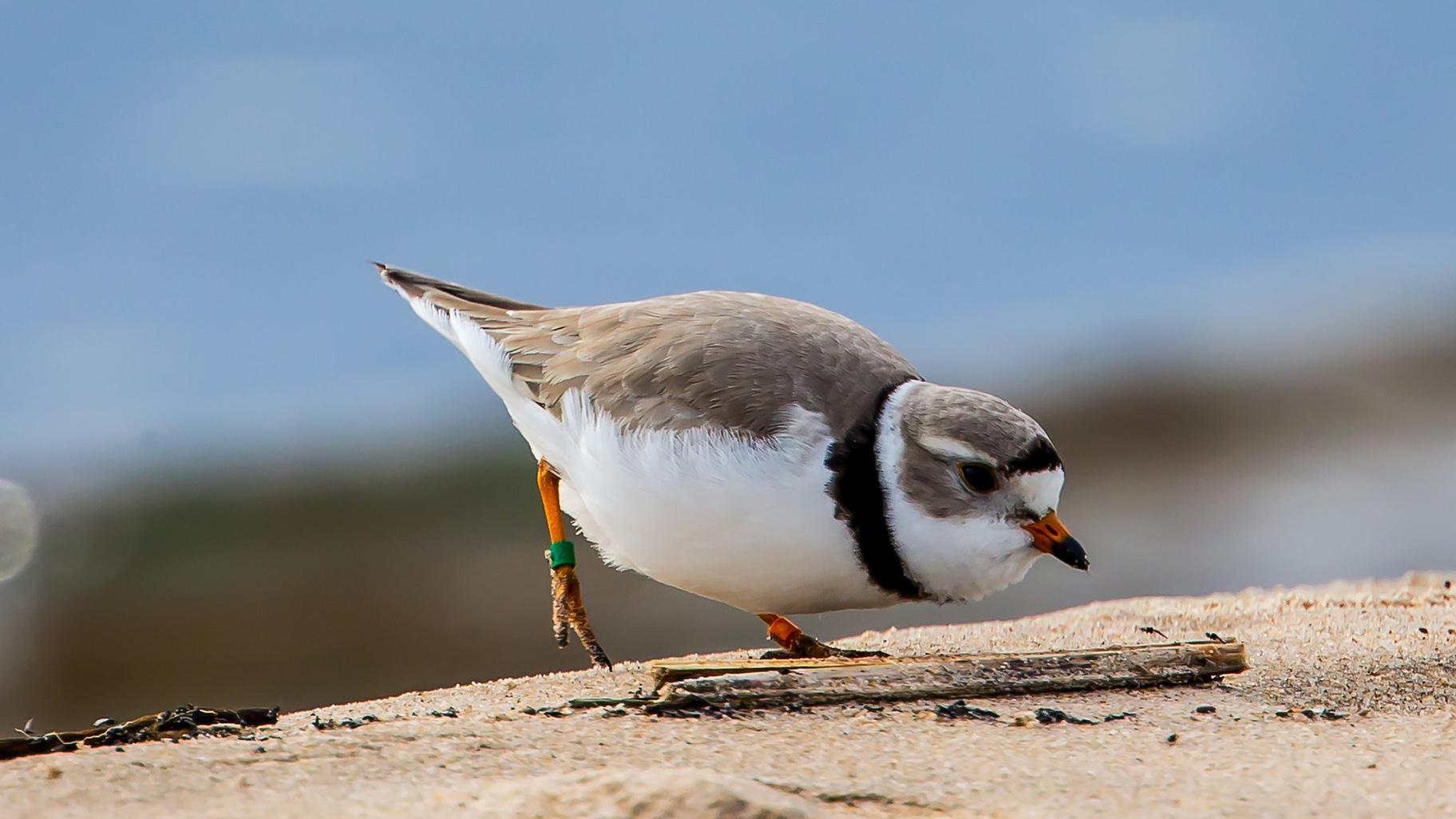 A piping plover on Waukegan Beach in 2018. (Ethan Ellis / Flickr)
A piping plover on Waukegan Beach in 2018. (Ethan Ellis / Flickr)
Chicago’s trio of piping plover chicks are nameless no more.
After receiving 500 submissions in a naming contest, the Illinois Ornithological Society, Chicago Ornithological Society and Chicago Audubon Society announced the fledglings are now officially known as Hazel, Esperanza and Nish.
A selection panel comprising representatives from several nature, environmental and cultural organizations made the final decision. The choices reflect Chicago’s culture, heritage and diversity.
Each chick was banded, so the names won’t be applied interchangeably.
Here is the meaning behind each name:
Hazel is in honor of Hazel M. Johnson, often called the mother of the environmental justice movement. Johnson lived in the Chicago Housing Authority’s Altgeld Gardens development and fought against the high concentration of hazardous waste surrounding her community. Her work was instrumental in getting the Environmental Protection Agency to incorporate environmental justice principles into its work.
Esperanza, which means “hope” in Spanish, was submitted by multiple individuals. It symbolizes the city’s Hispanic culture and also serves as a reminder that even in a year and time filled with pain, uncertainty and sorrow, there is still hope.
Nish highlights the direct relationship and contributions of The Council of the Three Fires (Potawatomi, Ojibwa and Odawa) to what is now modern-day Chicago. Nish is a colloquial expression for Nishnabe’k (Potawatomi) and Anishinaabe (Ojibwa and Odawa).
This is the second year that the chicks’ parents, Monty and Rose, have nested at Montrose Beach Dunes. Piping plovers are endangered along the Great Lakes and the appearance of Monty and Rose, which have fledged five chicks in two years, has been a cause for celebration among conservationists and nature lovers.
In a statement, Tamima Itani, vice president of the Illinois Ornithological Society, thanked all those who made the nesting, hatching and fledging possible: the dunes steward and volunteers, the Chicago Park District, the U.S. Fish & Wildlife Service, the Illinois Department of Natural Resources, the U.S. Department of Agriculture, the Great Lakes Piping Plover Conservation Team, the Chicago Police Department, the Montrose Beach community of volleyball players and kayakers, “and scores of volunteers who stood watch from sunrise to sunset for weeks on end to ensure the safety of the nest and the chicks.”
“These Piping Plovers have united thousands of people across the Chicagoland area and become strong ambassadors for birds and their conservation,” Itani said.
Contact Patty Wetli: @pattywetli | (773) 509-5623 | [email protected]

